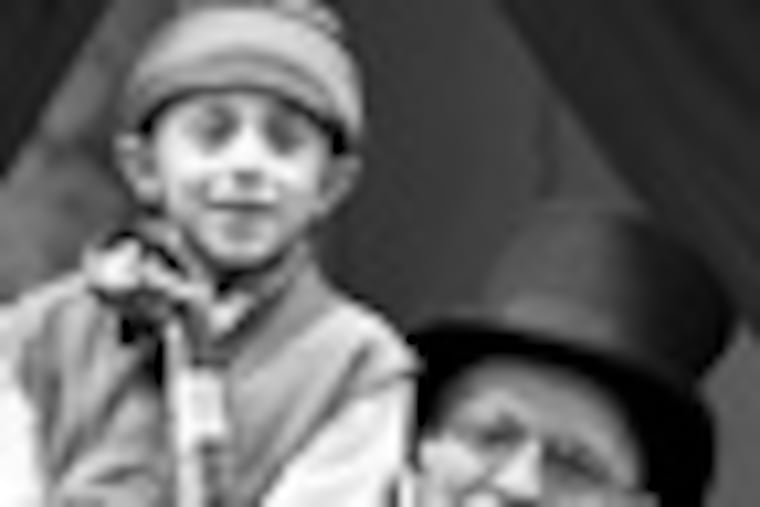Scrooge born in Philly?
By Dolores Lehr Charles Dickens has always been popular in Philadelphia. The city has its statue of this famous Victorian author where the Friends of Clark Park gather each February to celebrate his birthday. The "Dickens Village" at Macy's, moved from its form

By Dolores Lehr
Charles Dickens has always been popular in Philadelphia. The city has its statue of this famous Victorian author where the Friends of Clark Park gather each February to celebrate his birthday. The "Dickens Village" at Macy's, moved from its former location in Strawbridge's, attracts large crowds of visitors every year during the Christmas holidays. The Philadelphia Free Library is concluding its yearlong celebration of the Dickens' Bicentenary (1812-2012), which has included monthly discussions of Dickens' works, displays of his letters and artifacts, and other festive events.
Yet, while this popular author has always had a special appeal for Philadelphians, few probably realize that his visit to their city might have played a role in the writing of his most famous Christmas story.
Dickens visited Philadelphia twice - in 1842 and 1868. During his first visit, he, like so many other European visitors of his time, was eager to see Eastern State Penitentiary, opened in 1829 and designed to keep prisoners isolated so that they would not be further corrupted from association with each other - and eventually be reformed. When prisoners entered this penitentiary, hoods were placed over their heads and they were never to see anyone again until their release.
When Dickens visited this penitentiary in 1842, he was horrified by what he perceived as an extremely inhumane system. When he returned to England, he wrote about this visit in a chapter of his travel book American Notes, entitled "Philadelphia and Its Solitary Prison." His reflections show what he thought would be the state of anyone subject to the "torture and agony, which this dreadful punishment, prolonged for years, inflicts upon the sufferers."
With this extreme isolation, Dickens pictured what a prisoner might have experienced, including the appearance of a ghost at night in his cell, where "always at the same hour, a voice calls to him by name ... a hideous figure watching him till daybreak." Such reflections on these prisoners, which Dickens wrote about so poignantly in 1842, might well have inspired his creation of Ebenezer Scrooge in "A Christmas Carol" the following year. Dickens depicted Scrooge, not as a prisoner, but as an individual isolated from society almost as much as the prisoners he had met and observed the year before.
In the beginning of "A Christmas Carol," Scrooge is shown as almost totally cut off from others - Bob Cratchit, his clerk, shivering without coals for heat in the counting house; his nephew Fred, coming by to invite him to Christmas dinner; and the two portly gentlemen soliciting a donation for the poor. Scrooge in his self-imposed isolation is unable to relate to any of these people or their concerns.
When Scrooge retires for the night, he begins to see ghosts - just as Dickens imagined prisoners in Eastern State would. When Scrooge sees the ghost of Jacob Marley, the ghost says, "It is required of every man ... that the spirit within him should walk abroad among his fellow-men." Marley admits "My spirit never walked beyond our counting house" - and so he suffers now from his own self-confinement.
As the other ghosts later appear to Scrooge, they show him scenes of people from all walks of life and locales with families and friends - all experiencing the holidays together. The Cratchit family, for instance, is described as not handsome or well-dressed, but nevertheless "pleased with one another." Scrooge, on the other hand, is described in his office alone, "Quite alone in the world."
Dickens was a writer, not a politician, so when he returned to England from his trip to America he didn't try to change the system he had witnessed and abhorred at Eastern State Penitentiary. Instead, he denounced it in his chapter on Philadelphia in American Notes, writing in his conclusion that "nothing wholesome or good has ever had its growth in such unnatural solitude." The following year, 1843, he showed the effects of this unnatural solitude and dramatized his powerful argument for change in "A Christmas Carol."